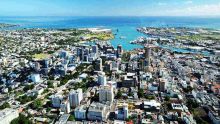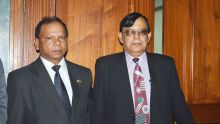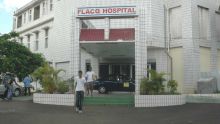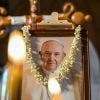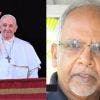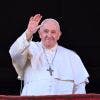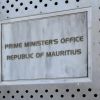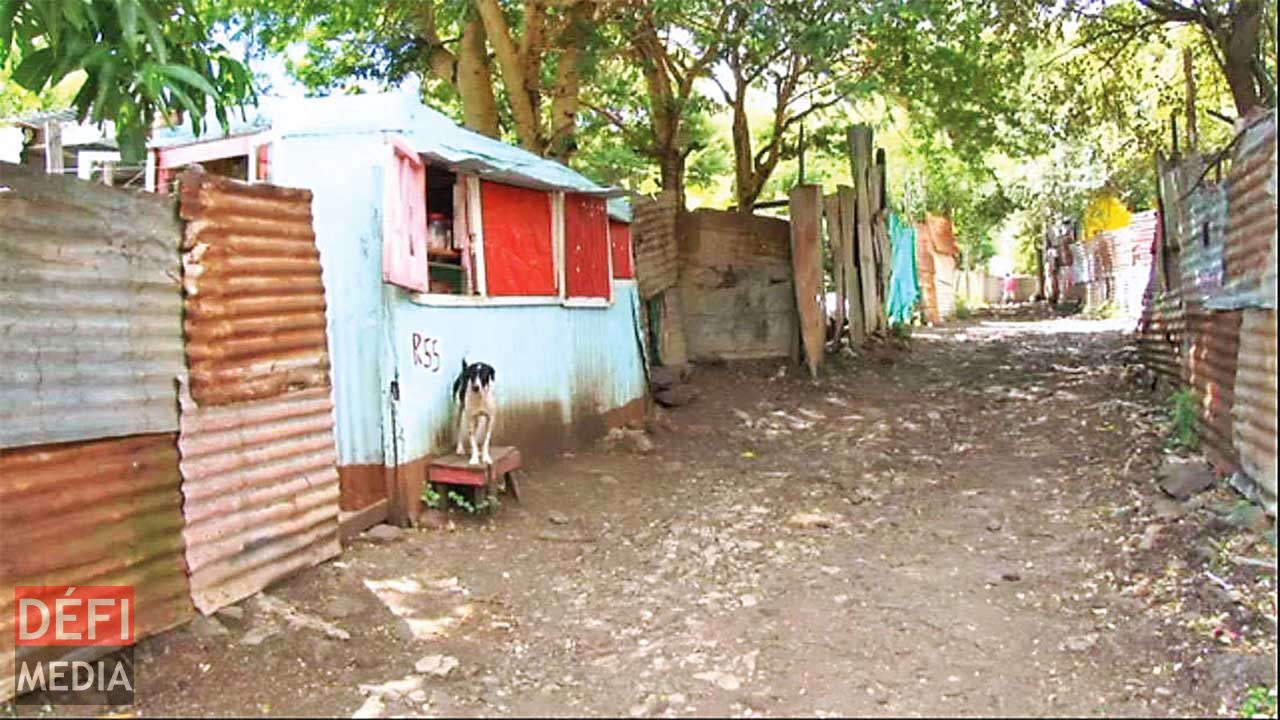
The International Day for the Eradication of Poverty was observed on Monday 17 October 2016. Poverty has since long been the focus of politicians, trade unions, social workers and economists in Mauritius. While the country aims to become a high-income nation, the issue of poverty remains to be tackled swiftly and efficiently.
Publicité
 The International Day for the Eradication of Poverty dates back to 17 October 1987, when thousands of persons, at the call of Joseph Wresinski, gathered at the Trocadéro in Paris to honour the victims of extreme poverty, violence and hunger. They proclaimed that poverty is a violation of human rights and affirmed the need to come together to ensure that these rights are respected. On 22 December 1992, the United Nations declared 17 October as the International Day for the Eradication of Poverty. The day is now an occasion to reflect on the issue of poverty, the causes and the solutions.
The International Day for the Eradication of Poverty dates back to 17 October 1987, when thousands of persons, at the call of Joseph Wresinski, gathered at the Trocadéro in Paris to honour the victims of extreme poverty, violence and hunger. They proclaimed that poverty is a violation of human rights and affirmed the need to come together to ensure that these rights are respected. On 22 December 1992, the United Nations declared 17 October as the International Day for the Eradication of Poverty. The day is now an occasion to reflect on the issue of poverty, the causes and the solutions.
The theme this year was: “Moving from humiliation and exclusion to participation: Ending poverty in all its forms.” Fighting poverty has always been high on the agenda in Mauritius and the Welfare State is continuously upgraded to cater for the needy of our society. The latest addition is the launching of a ‘Social Register of Mauritius’ where needy families with monthly revenues less than the statutory threshold are able to register in order to receive social aid top up.
Definitions
Absolute poverty measures poverty in relation to the amount of money necessary to meet basic needs such as food, clothing, and shelter. Absolute poverty does not consider broader issues such as quality of life or inequality in society. Relative poverty defines poverty in relation to the economic status of other members of society: people are poor if they fall below prevailing standards of living in a given societal context. Today, the concept of poverty transcends the economic angle. Poverty is also social, political and cultural. Moreover, it is considered to undermine human rights - economic (the right to work and have an adequate income), social (access to health care and education), political (freedom of thought, expression and association) and cultural (the right to maintain one’s cultural identity and be involved in a community’s cultural life).
The poverty line
The poverty threshold, poverty limit or poverty line is the minimum level of income deemed adequate to lead a decent standard of living. Determining the poverty line is usually done by finding the total cost of all the essential resources that an average human adult consumes in one year. The World Bank has in October 2015 set the global poverty line at $1.90. According to the World Bank, a person is said to be poor if he lives on less than $1.90 a day. In Mauritius, until recently, any family earning less than Rs 6,200 per month was considered poor. This year, following the 2016-17 Budget, the threshold has been raised to Rs 9,520 for the purpose of registering in the Social Register of Mauritius. It is estimated that about 30,000 families in Mauritius fall under the category of ‘poor families’.
Causes of Poverty
Causes of poverty vary from country to country. The historical cause of poverty is that many nations including Mauritius were former colonies, affected by the slave trade, and the legacies created the conditions that prevent many people from accessing land, capital, education and other resources that allow people to support themselves adequately.
Social inequality also gives rise to poverty. Inequality can generate poverty by barring groups with lower social status from accessing the tools and resources to support themselves. According to Analyst Gavin Ng, other important causes of poverty include unemployment, debt, low education and poor health. “Low salary level is a huge factor. It prevents people from making progress. Furthermore, poverty is a vicious circle. If parents cannot invest in their children’s education, then the children in turn suffer from poor access to facilities. Other factors include lack of proper housing, with families having to spend a lot on rent. Nowadays, social ills such as drugs, alcohol abuse and gambling are further pushing vulnerable people into poverty. In Mauritius, we have seen how people trapped into debts have lost their lands and home under the ‘Sale by Levy’. Economic downturn also generates poverty when enterprises close down and lay off workers.”
The solutions
Economist Arvind Nilmadhub explains that job creation is the best solution to tackle poverty. “Unfortunately, our economy is not being able to create jobs, especially high value addition jobs that can secure families with good income. We have lots of people without any formal qualifications and there is no job for them. The manufacturing and agricultural sectors have vast potential to create jobs for unskilled labour, but we are not tapping into them. Poverty also arises when families cannot afford to buy necessities such as food, resulting in poor nutrition that in turn generates health issues. We can encourage needy people to increase their level of self-subsistence by cultivating their basic food. The concept of backyard farming must be widely encouraged and necessary tools, training and facilities given. Another method to combat poverty is to encourage micro-enterprises. Poor people cannot invest heavily, because they don’t have funds and also because they can’t access funding. With micro-credit they can set up micro-businesses and trades and improve their lifestyle. The economy should create such opportunities. For example, if we take the Ebene Cybercity example, everyday we see lots of common people coming to sell food items from the boot of their cars or on motorbikes. Rather than banning them, the government must provide them the necessary facilities to carry out their trade according to regulations and norms.”

Prithviraj Fowdur, economist, says we must encourage people to work. “There are many jobless persons who do not want to work. Yet there are many employers who cannot find labour. Some enterprises have recourse to foreign labour because they can’t find workers locally. People no longer want to work in such sectors like manufacturing or agriculture. However, it is equally true that jobs in these sectors must be upgraded and decent pay offered,” he explains. Both economists agree that eradication of poverty requires access to housing, education, leisure and proper infrastructure in order to combat social exclusion.
 Beggars Avenue?
Beggars Avenue?
While it is a common scene in most countries for beggars to ply at traffic lights on busy road, this tendency is now being observed in Mauritius. Is it a sign that poverty now knows new heights? Beggars thrive at Place D’Armes and the Quai D in Port Louis. It all started with one or two women begging in the area, until, over time more persons came to operate in the surroundings. Begging in public is an offence but despite the existence of CCTV cameras monitored by the police, the begging trade continues, and the authorities turn a blind eye, as no government agency responsible for the subject of poverty has deemed it necessary to find out who are these people and how to help them. While we are talking about the rights and protection of women, these women are begging on the motorway for a living and is a big blow to the image projected by Mauritius as a tourist and investment destination. Hawkers are also seen in this area peddling their wares to motorists, and it is not uncommon for some of them to shove knives for sale in the face of motorists. So much for safety!
Too bureaucratic
The noble intentions of the government are sometimes affected by costly bureaucracy. For example, today we have many institutions with the same objective: fighting poverty, and each takes actions and initiatives on its own. This fragmented approach entails high administrative and management costs, if spared, could have been useful in assisting the needy further. Arvind Nilmadhub cites the case where the Ministry of Social integration, the Ministry of Gender Equality, the National Empowerment Foundation, the Ministry of Social Security and the National CSR Foundation have overlapping roles. “A poor family does not know which is the appropriate door to knock at. Very often, he is moved from one agency to another. The ideal way is to have a single agency dealing with poverty issues. This will improve efficiency, service delivery and reduce costs,” says the economist.
Social integration
The Ministry of Social Integration is the body responsible for managing the Social Register of Mauritius. With a budget of Rs 843 million for the fiscal year 2016/2017, the Ministry also provides social benefits to the tune of Rs 297 million. Last year, a total of 13,267 families earning less than Rs 6,200 registered under the Social Register of Mauritius. This year, the threshold has been raised to Rs 9,520 and 16,925 families have registered so far. The Ministry also offers school materials to about 25,000 needy children.
Strategic Direction 2016-2019
- Enhance empowerment of vulnerable families through education, employability and improving their living conditions
- Adopt and implement holistic, coherent, participatory and time-bound strategies in our fight against poverty by engaging all stakeholders involved and develop a concerted approach in this endeavour
- Promote sustainable human development and improve the life chances of children of poor families by providing support programmes and widening the circle of opportunities for learning and development from a very early stage
Main Achievements for FY 2015/16
- Marshall Plan against Poverty finalised in collaboration with UNDP.
- Registration of 13,267 households, with a monthly income of less than Rs 6,200 under the Social Register of Mauritius (SRM)
- 117 Concrete cum Corrugated Iron Sheet housing units constructed for vulnerable families
- Provision of school materials to 25,236 poor children in Mauritius and 6,714 poor children in Rodrigues
Marshall Plan
The ‘Marshall Plan’ is evoked every time there is a debate on poverty in Mauritius. But what exactly is a Marshall Plan? The Marshall Plan, contrary to popular belief, is not a ‘Poverty Theory’ but was a ‘European Recovery Program’ after the devastation of Europe during the Second World War. The US President Harry Truman appointed George Marshall as Secretary of State and the latter worked out the recovery plan, which later bore his name.

Notre service WhatsApp. Vous êtes témoins d`un événement d`actualité ou d`une scène insolite? Envoyez-nous vos photos ou vidéos sur le 5 259 82 00 !











